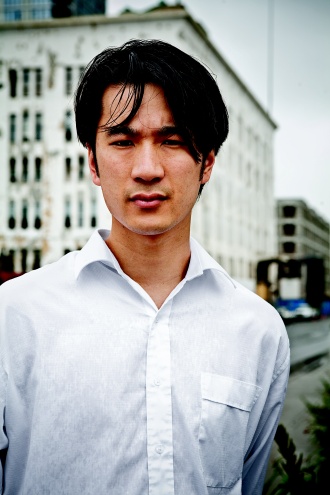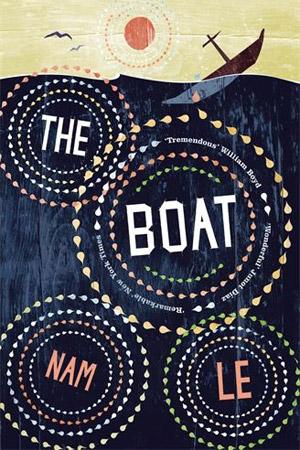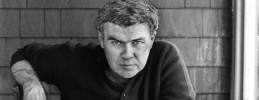
Photo by Yves Schiepek
Article by Katherine Orr
I have always felt frustrated by the stock advice to the young writer: write what you know. Used as an overarching principle it can wrong-foot us, and make us timid about taking on subject matter outside our immediate experience. Sometimes it seems to be interpreted as write only what you know. I find that when I do step outside personal experience something interesting starts to happen. The tension between the known and the unknown becomes not only an inspiring part of the writing process—that feeling of breaking new ground—but also lends resonance to the work itself.
 Nam Le is a young writer who does not follow the rulebook of What I Know, and who has subsequently written a collection of important, humane stories that are fully engaged with the world outside the parameters of his personal experience. He has challenged himself as a writer—and he has won accolades for his work. Reading The Boat, I felt I was being given permission to trust the rules of my own instincts and interest.
Nam Le is a young writer who does not follow the rulebook of What I Know, and who has subsequently written a collection of important, humane stories that are fully engaged with the world outside the parameters of his personal experience. He has challenged himself as a writer—and he has won accolades for his work. Reading The Boat, I felt I was being given permission to trust the rules of my own instincts and interest.
The collection opens with a playful and moving story about the tensions involved in approaching a piece of fiction. Nam Le casts himself as a character, who, like him, is a creative writing student at Iowa Writers’ Workshop, struggling to find inspiration before his next deadline. Born in Vietnam and raised in Australia, he wrangles with the advice he has received. A tutor has told him that ethnic literature is ‘hot’. Agents have offered him something like a mantra: his ‘background and life experience’ will make him stand out. As he sets about writing an ‘ETHNIC STORY’, the character Nam Le encounters the hazards of plundering someone else’s experience in the name of literature—in this case his father’s deeply personal memories of the Vietnam war. Meanwhile, Nam Le the writer weaves in and out of autobiography and fiction as he explores the writing process itself, and what it might mean to engage with Faulkner’s ‘old verities’ of ‘Love and honor and pity and pride and compassion and sacrifice.’
 From that personal starting point, Nam Le sets off. The stories that make up The Boat are set in locations as various as Columbia, the States, Australia, Japan and the South China Sea. The characters Nam Le assumes are diverse: an aging painter, a young female refugee, a fourteen-year-old hit man. In the opening story a fellow Iowa student applauds the author for writing about ‘“lesbian vampires and Colombian assassins, and Hiroshima orphans”’—the lesbian vampires didn’t quite make it into the collection, but give some idea of his range.
From that personal starting point, Nam Le sets off. The stories that make up The Boat are set in locations as various as Columbia, the States, Australia, Japan and the South China Sea. The characters Nam Le assumes are diverse: an aging painter, a young female refugee, a fourteen-year-old hit man. In the opening story a fellow Iowa student applauds the author for writing about ‘“lesbian vampires and Colombian assassins, and Hiroshima orphans”’—the lesbian vampires didn’t quite make it into the collection, but give some idea of his range.
The Boat is startling for its versatility, but also for its sense of heart. Most of all, what has stuck with me is the humane gesture, repeated throughout, of daring to engage with someone else’s experience—regardless of the risks attached.


Thanks for the review. For the longest time I struggled to write what I know. I’m also an ethnic writer – not as hot as some others though – Italian but maybe my saving grace is that I’m also part
Croatian and Austrian? For me though it was the opposite since writing what I knew rested with recreating experiences that I felt others couldn’t relate to. Perhaps this was my judgment getting in the way, at any rate I never felt genuine when writing from that perspective and i didn’t know why. Instead of feeling free, this felt more restrictive from the reasons you stated. Now I’m glad to say I am experiencing that freedom – I’m writing different kind of stories – and it is exhilarating and scary at the same time. These stories open up a whole new world with endless possibilities which can be unnerving at times. I almost feel possessed! Sometimes they don’t make sense but I know that with skill and patience they can become a work of art.